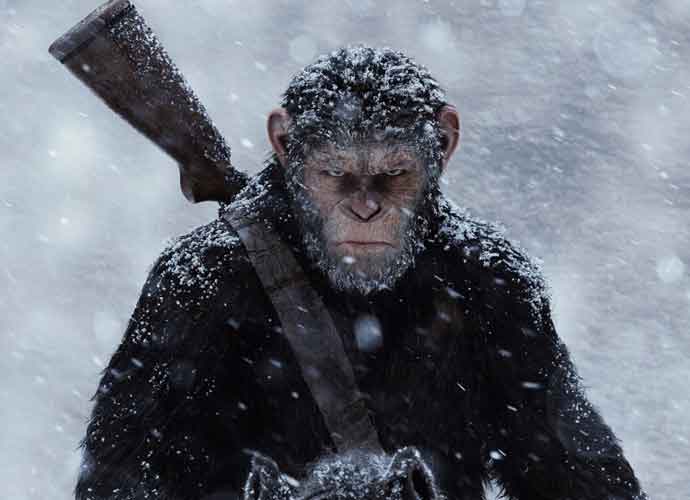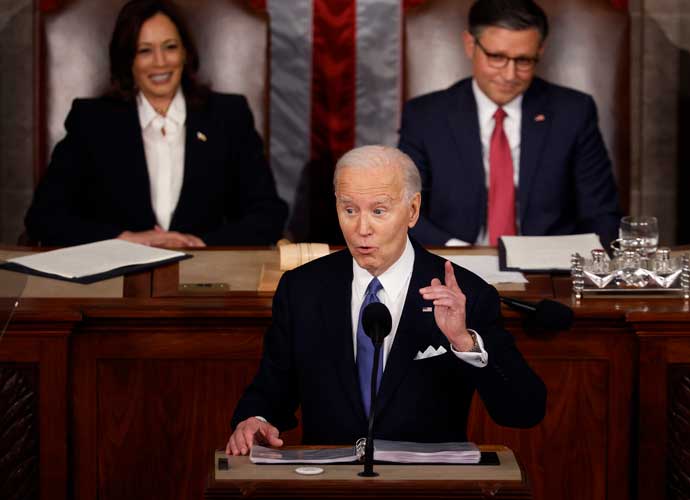‘War For The Planet Of The Apes’ Review Roundup: A Grim But Beautiful Sequel

4/5
Ever since Charlton Heston‘s original 1968 film Planet of the Apes, the franchise has grown to feature 9 movies, the most recent being 2017’s War for the Planet of the Apes. Following in the footsteps of the original, the newest film garnered an impressive 92% on Rottentomatoes.
Technically this film is the third in the current franchise, which began in 2011, following the previous two successes. Directed by Matt Reeves, War for the Planet of the Apes pits Caesar (Andy Serkis) and his apes against an army led by a ruthless colonel (played by Woody Harrelson). The anger built up in Caesar makes him question his own morals and see the darkness inside. A massive battle between the leaders will determine the futures of both their species and the whole planet. Steve Zahn, Terry Notary, Amiah Miller, and Karin Konoval co-star.
WAR FOR THE PLANET OF THE APES REVIEW ROUNDUP
“The recent prequels to the Planet of the Apes films are prime examples of revitalizing, honoring and transcending familiar source material… It all reaches a breathtaking climax in War for the Planet of the Apes. Visually, the film is gorgeous, with complex but clearly presented battles and utterly lifelike computer-generated anthropoids perfectly meshed with on-camera performers. Creatively, it’s blessed with Andy Serkis as the lead actor, playing the ape leader Caesar for the third time… If reviving pop-culture oldies has become Hollywood’s prime directive, this trilogy’s confident work is the way to do it. I recommend it without reservation.”
–Colin Covert, StarTribune
“War for the Planet of the Apes, directed by Matt Reeves, is the grimmest episode so far, and also the strongest, a superb example — rare in this era of sloppily constructed, commercially hedged cinematic universes — of clear thinking wedded to inventive technique in popular filmmaking… Really, though, it’s a lot of fun, in spite of the somber picture I’ve been painting… Mr. Reeves has a dark vision, but also a light touch when necessary, and, above all, a commitment to creating a world that is coherent as well as fantastical. This world is also intensely and somewhat unimaginatively masculine. The default setting for primate social organization in these movies, human and otherwise, is patriarchal, and while a few female apes and a young human girl appear on screen, the filmmakers’ inability to flesh out the familial and affective dimensions of an otherwise richly rendered reality is frustrating.”
–A.O. Scott, The New York Times
“Thank God people can’t really travel into the future, as they do in Planet of the Apes, because then moviegoers from 1973 might land in our time, discover that one of the summer’s biggest releases is a remake of the lamebrained Battle for the Planet of the Apes, and die of shock. The idea of rebooting the Apes franchise by revamping the last two installments of the original series worked well enough in Rise of the Planet of the Apes (2011), when the talking ape Caesar (Andy Serkis in a motion-capture performance) pulls away from his human family and marshals his simian pals against humanity. At this point, however, the apes have formed their own society in the forest, communicating through captioned sign language; the more engrossing intraspecies relationships have disappeared, and the simian ones lack the verbal wit that animated the original series.”
–J.R. Jones, Chicago Reader
We really know these characters by now and so do the computer artists who transform motion capture performances into the curious creatures we see on screen. To call them realistic is to miss the point, or at least part of the fun. They’re something more interesting than that: They’re movie magic.”
–Oliver Jones, The Observer
RELATED ARTICLES
Get the most-revealing celebrity conversations with the uInterview podcast!







Leave a comment